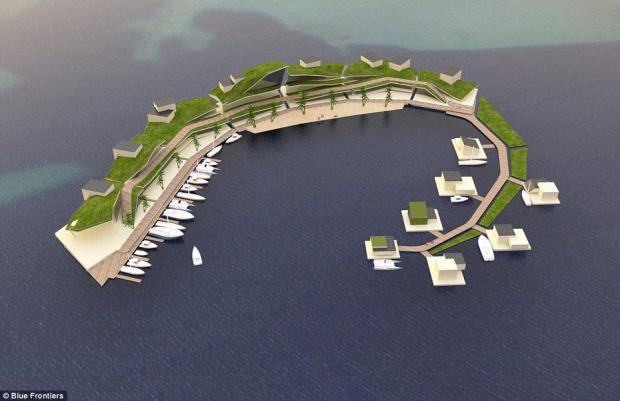
Breaking News
 Christmas Truce of 1914, World War I - For Sharing, For Peace
Christmas Truce of 1914, World War I - For Sharing, For Peace
 The Roots of Collectivist Thinking
The Roots of Collectivist Thinking
 What Would Happen if a Major Bank Collapsed Tomorrow?
What Would Happen if a Major Bank Collapsed Tomorrow?
Top Tech News
 Travel gadget promises to dry and iron your clothes – totally hands-free
Travel gadget promises to dry and iron your clothes – totally hands-free
 Perfect Aircrete, Kitchen Ingredients.
Perfect Aircrete, Kitchen Ingredients.
 Futuristic pixel-raising display lets you feel what's onscreen
Futuristic pixel-raising display lets you feel what's onscreen
 Cutting-Edge Facility Generates Pure Water and Hydrogen Fuel from Seawater for Mere Pennies
Cutting-Edge Facility Generates Pure Water and Hydrogen Fuel from Seawater for Mere Pennies
 This tiny dev board is packed with features for ambitious makers
This tiny dev board is packed with features for ambitious makers
 Scientists Discover Gel to Regrow Tooth Enamel
Scientists Discover Gel to Regrow Tooth Enamel
 Vitamin C and Dandelion Root Killing Cancer Cells -- as Former CDC Director Calls for COVID-19...
Vitamin C and Dandelion Root Killing Cancer Cells -- as Former CDC Director Calls for COVID-19...
 Galactic Brain: US firm plans space-based data centers, power grid to challenge China
Galactic Brain: US firm plans space-based data centers, power grid to challenge China
 A microbial cleanup for glyphosate just earned a patent. Here's why that matters
A microbial cleanup for glyphosate just earned a patent. Here's why that matters
 Japan Breaks Internet Speed Record with 5 Million Times Faster Data Transfer
Japan Breaks Internet Speed Record with 5 Million Times Faster Data Transfer
Incredible images reveal a futuristic vision inspired by Polynesian traditions

The plans will see the seabound city-state, complete with a handful of hotels, homes, offices, restaurants and more, built in the Pacific Ocean off the island of Tahiti in 2020.
Now, a series of computer generated graphics reveal how it might look once complete, with a design that blends futuristic technology with Polynesian traditions.
The scheme is the creation of the nonprofit Seasteading Institute, which hopes to 'liberate humanity from politicians'.
The radical plans could see the creation of an independent nation that will float in international waters and operate within its own laws.
'Seasteading' has long been the stuff of science fiction, drawing comparisons with the post-apocalyptic Kevin Costner movie Waterworld.
But the fantasy looks to be coming closer to reality with companies, academics and architects from the Seasteading Institute working on a prototype for construction at the turn of the next decade.
The latest concept images take inspiration from the rich Polynesian culture, in particular from traditional navigation, which is based on the observation and knowledge of natural elements.

 The State's Last Stand
The State's Last Stand


